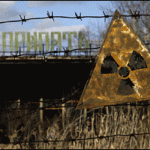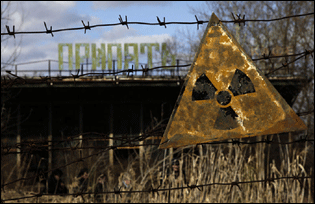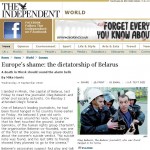My speech at the World Humanist Congress 2014 #whc2014
These are the notes from my speech on future challenges to the internet at the World Humanist Congress 2014.
EXCUSE FORMATTING
In considering the threat to internet freedom, we need to consider the opportunity – and the opportunity that will be lost.
The Internet is the most significant technological development since the invention of the steam engine and will retrospectively, be seen as the most important technological invention of human history.
Why do I say this?
The Internet – I’m going to use this term as short hand for the network(s), the World Wide Web, social media etc – has reduced the net cost of copying information to almost zero.
This has profound implications for the way we:
i. do government,
ii. challenge authority,
iii. view human rights
and iv. learn
So in my consideration of the challenge, I’d like to outline what is positive, and therefore what could be lost if we curtail internet freedom.
1. Do government
Everyone remember the book, Bowling Alone? [1]
It was based on a 1995 essay that forsaw a future where, and I quote:
“Robert D. Putnam warns that our stock of social capital – the very fabric of our connections with each other, has plummeted, impoverishing our lives and communities.
Putnam draws on evidence including nearly 500,000 interviews over the last quarter century to show that we sign fewer petitions, belong to fewer organizations that meet, know our neighbors less, meet with friends less frequently, and even socialize with our families less often. We’re even bowling alone. More Americans are bowling than ever before, but they are not bowling in leagues.”
The exact opposite has happened.
Who in the room signed a petition in the last 6 months?
Who is the room has attended a public event (gig, concert, a prostest, a political meeting) in the last six months?
And how many people learnt about that public event via the internet?
Last week in The Spectator, the magazine of the British right, had a piece by commentator Ross Clark entitled, “Individualism is Dead” [2], apparently we have now sucumbed to the lure of the crowd. Too many people are getting together, as many as 6 million lined the streets of Yorkshire to watch the Tour de France.
200,000 people now attend Glastonbury. Spurred on their friends showing how much fun they’re having on Facebook.
Sure we’re becoming more narcarsistic, but we’re also becoming more devoted to each other’s company.
We are not bowling alone.
This has profound implications for democracies.
In 1969, writer Norman Mailer ran to be the Democrat candidate for Mayor of New York.
He got crushed by the Democratic party machine candidates.
You can watch a highly entertaining BBC documentary about this [3].
Here was Mailer, a highly popular author. A hugely successful influencer backed by New York’s hipsters unable to break through into the political class.
It tells us something about the Internet:
1/ Politics used to be dominated by the block vote. Organised locally or in the workplace. 5,000 people working in a single dockyard. Strong union voices or even the factory bosses dominating how people voted, but able to leverage influence.
That died in the 1980s and wasn’t replaced by any collective forces.
Now, it’s creeping back. Thanks to petition sites and social media there are new movements enabled by technologies (as diverse as the Tea Party through to UK Uncut and the Occupy movement).
Suddenly politics is back and vibrant.
Change.org. Avaaz, new NGOs and new groups are revitalising politics and they are all enabled by new technologies and the power of social media.
Crowd-sourced election campaigns are with us now. Suddenly a candidate like Norman Mailer would have a serious chance.
We think of this as new, but it is a reversion to norm. Suddenly politics is about mobilising groups of people – not of elites, or dominant blocks.
It is a challenge to a generation of democratic politicians who grew up in the 1980s.
The challenge to autocracies is even greater still.
ii. The challenge to authority
It used to be very hard indeed to faciliate protests in autocratic states. This is mostly unknown, but the period 1964-66 was seen as an era of protest in Soviet Russia. There were a number of public protests, but no more than a dozen per year. This was seen as exceptional.
Now, even in autocratic China, protests are more commonplace.
Social media allows us to join a protest when we know it will reach a critical mass of participants. If I am a dissident in China I don’t want to protest alone, but if I protest with 1,000 people I am less likely personally to be arrested.
With social media, the impact can be most clearly seen with the Revolution Via Social Networks protest movement in Belarus. [4]
The movement originated on the Russian social network VKontakte and the group quickly grew to have over 27,000 members.
The group organised “clapping protests” through the streets of the capital Minsk, which quickly spread across the country.
Belarus had not seen significant political protests in nearly a decade.
Suddenly the group had 120,000 members (around 1.25% of the entire population of Belarus).
Eventually, the authorities fearing this new peaceful protest made a series of mass detentions.
A similar process can be seen when we look at the successful Maidan protests in the Ukraine where initial small protests quickly mushroomed into a successful revolution. The internet allowed protesters to organise and to share strategies. Ukrainians living abroad became part of the broader national conversation, thanks to the internet.
Part of why we are seeing so much political turbulence is also thanks to the internet:
We are in a new age of whistleblowers
Wikileaks & Snowden simply impossible just a decade before.
At the point where I was born a leak would have not been digital – but the photocopying of papers. [5]
NSA’s PRISM and GCHQ’s PRISM programmes we only know due to whistleblowers and their ability to distribute information – and contact journalists to help support this – securely and remotely.
Whistleblowing is having a huge impact on public policy.
Tunileaks – helped spark the Tunisian revolution. [6]
Wikileaks cables were processed by a Tunisian NGO (Nawaat) – showed people in Azerbaijan how their leader had stolen their money and how well-funded European lobby groups (such as TEAS) may be funded.
But, we’re seeing the old command and control mentality of our political leaders.
Chelsea Manning has been given what is effectively a life sentence.
Edward Snowden remains in exile in Putin’s Russia – it is a little known fact he ended up in Russia after the US government threatened European states that they would be punished if they let the plane he was on to South America pass over European soil.
We need to protect whistleblowers or we will only get whistleblowers with a sharp agenda.
3. Freedom of expression for marginalised voices
Global Voices — Hisham
Reduction to zero of net cost of distribution and social media allows
the dissemination of previously marginalised voices: transgender,
marginalised ethnic voices, marginalised caste voices, gay people in
Saudi etc. Huge impact on freedom of expression.
4. A new age of knowledge
Here is a PC Pro magazine review of Encylopedia Britanicca from 1995. [8]
Encylopedia Britannica on CD Rom cost $799 in 1995.
It had no video. It had no sound clips. It had no images whatsoever.
It did however have 66,000 articles.
Anyone want to hazard a guess how many articles Wikipedia has?
4,576,424 [9]
It will soon be 100 times bigger than an esteemed enyclopedia (the encyclopedia of note) that was developed over the course of 300 years.
It is not owned by a corporation.
People on $5 a day who can accord a mobile phone with 2.5g can access Wikipedia.
It is a fundamental change in the access to knowledge.
The internet has faciliated a huge leap forward in the ability of people to
self-educate and expand their knowledge. New online universities will
bring knowledge to tens of millions.
Old institutions that train a narrow elite will need to adapt or die.
So the internet can change the way we do government, challenge power elites particularly in authoritarian states, make government more open (whether voluntarily, or through whistleblowers) and democratise our access to knowledge globally.
That’s what we have to lose.
Notes:
[1] Bowling Alone
[2] Individualism is Dead, The Spectator
[3] Norman Mailer for Mayor of New York!
[4] Revolution Via Social Networks, Belarus
[5] Mike Harris, Protect Whistleblowers or you open the door to people like Julian Assange, The Independent
[8] PC Magazine, review of Encylopedia Britannica (1995)
[9] Growth in Wikipedia articles






